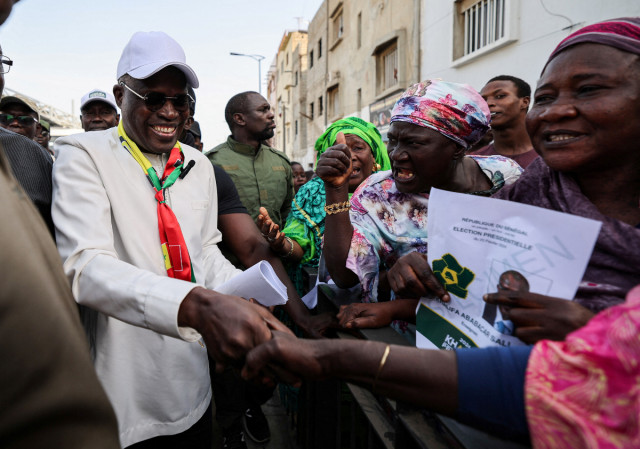Following weeks of chaos and uncertainty, millions of Senegalese are due to head to the polls on Sunday to vote in a presidential election.
The 18 men and one woman have until Friday to finish their respective campaigning period, dramatically shortened after a last-minute change to the election date.
The election race was also fired up by a rapidly-passed amnesty law that led last week to the release from prison of Bassirou Diomaye Faye and the charismatic Ousmane Sonko, figureheads of the anti-establishment opposition.
Although Faye is Sonko’s deputy, the former is on the ballot because the latter has been barred from standing.
They plan “to share resources fairly. What belongs to Senegal should be left to Senegal, that’s patriotism,” said 38-year-old teacher Gnima Mane in the southern city of Ziguinchor.
For the first time in Senegal, the incumbent will not feature on the ballot, with the candidate selected by outgoing President Macky Sall’s governing coalition up against 18 rivals.
In the central town of Diourbel, many people have faith in Sall’s candidate, Amadou Ba.
“We have new streetlights, roads and a grass stadium,” said high school student Ousseynou Diene during a rally for Ba.
Khalifa Sall, the former mayor of the capital Dakar, has also been mentioned as an outsider.
But the election remains wide open.
The race is “the most open” of the 12 presidential votes held under universal suffrage since Senegal gained independence from France in 1960, said Sidy Diop, deputy editor of Le Soleil daily.
Senegal is due to join the ranks of oil and gas producers this year, but some fear that a newfound rush of petrodollars would lead to corruption, instability and even greater poverty.




















